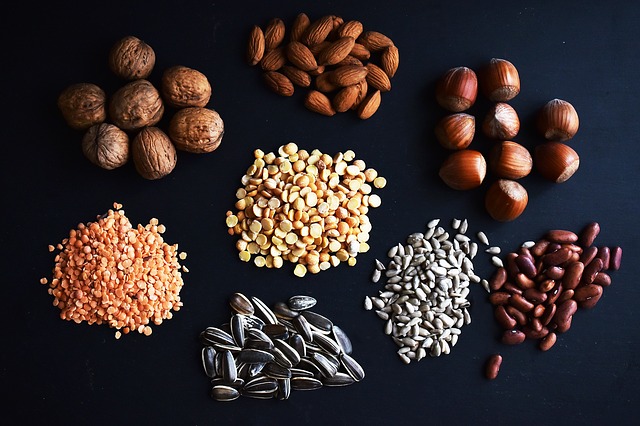Pecans are a large nut that is part of the hickory family. The tree is native to central and southern parts of the United States of America. Pecan nuts, like the fruit of all other members of the hickory genus, are not true nuts but, botanically, are a drupe.
Nuts are generally harvested from October through December. Raw nuts are then usually subjected to dehydration; the process which is essential to remove moisture and to improve the keeping quality of pecans
Nutritional Value
According to the Georgia Pecan Commission, pecans are an excellent source of oleic acid, a fatty acid found in abundance in olive oil and other monounsaturated fats. These fats have a protective effect on the blood, lowering total blood cholesterol and preserving the good HDLs that help combat heart disease.
Researchers from Loma Linda University in California and New Mexico State University in Las Cruces, New Mexico, have confirmed that when pecans are part of the daily diet, levels of “bad” cholesterol in the blood drop.
Pecans contain phytochemicals and are believed to be helpful in fighting some cancers, including colon and stomach cancers, according to Frank Sacks, associate professor of medicine at Harvard Medical School.
Pecans are low in saturated fat which is a kind of fat we want to avoid.
Recently, several studies have found that nuts, including pecans, should be included in your daily diet to help boost your immune system. A study completed at the University of Florida found that pecans are loaded with antioxidants that fight heart disease and cancer.
The nuts are very rich sources of several important B-complex groups of vitamins such as riboflavin, niacin, thiamin, pantothenic acid, vitamin B-6, and folates.
The nuts are also a good source of minerals:
- manganese
- potassium
- calcium
- iron
- magnesium
- zinc
- selenium
The same natural compound that gives pecans its cholesterol-lowering power, has also been shown to be effective in treating the symptoms of benign prostatic hyperplasia (BPH), a non-cancerous enlargement of the prostate gland in men.
About two ounces of pecans provides a dose of beta-sitosterol. In addition, a recent laboratory study from Purdue University found that gamma-tocopherol, the type of vitamin E found in pecans, has the ability to kill prostate cancer cells while leaving healthy cells alone.
How to Use Pecans
Unshelled pecans can be placed in a cool dry place for many months, whereas shelled (without the shell) kernels (nuts) should be placed inside an airtight container and kept in the refrigerator or freezer to avoid them turning rancid.
Of course one of the most common ways to eat pecan is in pecan pie. Many of you may have a family recipe for this wonderful treat. For those who are avoiding grain, I have found a very good grain free pecan pie. We will probably be eating it for Thanksgiving this year.
The grain-free Pecan Pie recipe is available from Cara At Health, Home And Happiness.
One place I have bought pecans straight from the farm in North Carolina is from Marmee Dear. Fresh from Grandpa’s farm in beautiful North Carolina. Grandpa is having another bumper crop this year and his mature trees could yield up to 4000 lbs again this year!
Our family gathers them up by hand (many hands make light work!) and he has them shelled mechanically. These are beautiful plump fresh nuts straight from Grandpa Greene’s Farm.
He uses no sprays and nothing but sunshine and rain have been put on these nuts! But he is not certified organic if you want to get technical about it.
Place them in your cart as a pre-order if you want to be guaranteed nuts fresh from the farm to your door. We always sell out every year and end up having disappointed nut lovers who didn’t get any as they literally sell out before we can gather them up and have them shelled and shipped out. Shipping usually begins in mid-November.
Do you eat pecans regularly?
- Are Pasteurized Almonds Good or Bad? - January 31, 2022
- Nutrition of Peanuts - November 20, 2013
- Happy With Hickory Nuts - November 13, 2013



One thought on “Pleased With Pecans”